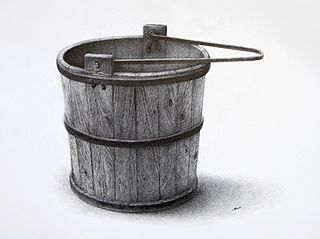Princesse Alice II 1898 Conversion script¶
Script to convert transcribed data to IMMA for the Princesse Alice II expedition in 1898. Uses the Python IMMA library, and the Copernicus DRS marine data conversion tools.
#!/usr/bin/env python
# Process digitised logbook data from the Princesse Alice II into
# IMMA records.
import sys
import os
import csv
import IMMA
from lmrlib import (baro_mm2mb,
time_local_hour_julianday2UTC,
time_date2julianday,
time_julianday2date)
Ship_name = 'PcsAlice2'
Lat_flag = 'N';
Lon_flag = 'W';
Last_lon = -2.99;
Last_lat = 53.40;
opfile='../../../imma/Princesse_Alice_1898.imma'
opfile='./raw.imma'
opw=open(opfile,'wb')
with open('%s/../as_digitised/ALBERT_1_1898a.csv' %
os.path.abspath(os.path.dirname(__file__)), 'r') as csvr:
rdr = csv.reader(csvr, delimiter=',')
count=0
for Fields in rdr:
count += 1
if count <= 3: continue # Headers
Ob = {}
Ob['attachments'] = []
Ob['attachments'].append(0)
Ob['ATTC']=0
for p in IMMA.parameters[0]: Ob[p]=None
if len(Fields[0])>0 and not Fields[0].isspace():
Year = Fields[0]
if len(Fields[1])>0 and not Fields[1].isspace():
Month = Fields[1]
if len(Fields[2])>0 and not Fields[2].isspace():
Day = Fields[2]
if len(Fields[3])>0 and not Fields[3].isspace():
Hour = Fields[3]
Ob['YR'] = int(Year)
Ob['MO'] = int(Month)
Ob['DY'] = int(Day)
Ob['HR'] = int(Hour)//100+(int(Hour)%100)/60
if Ob['HR'] == 24: Ob['HR']=23.99
if len(Fields[13])>0 and not Fields[13].isspace():
Ob['LAT'] = float(Fields[13])
Last_lat = Ob['LAT']
if len(Fields[14])>0 and not Fields[14].isspace():
Ob['LON'] = float(Fields[14])
Last_lon = Ob['LON']
# Convert ob date and time to UTC
# Start by assuming at UTC
if ( Last_lon is not None
and Ob['HR'] is not None
and Ob['DY'] is not None
and Ob['MO'] is not None
and Ob['YR'] is not None ):
elon = 0; # Last_lon
if elon < 0: elon += 360
( uhr, udy ) = time_local_hour_julianday2UTC(
Ob['HR'] * 100,
time_date2julianday( Ob['DY'], Ob['MO'], Ob['YR'] ),
elon * 100)
Ob['HR'] = uhr / 100
( Ob['DY'], Ob['MO'], Ob['YR'] ) = time_julianday2date(udy);
else:
Ob['HR'] = None
if len(Fields[8])>0 and not Fields[8].isspace():
Ob['SLP'] = baro_mm2mb(float(Fields[8]))
# Barometer is an aneroid -> no corrections
# Fill in extra metadata
Ob['IM'] = 0 # C
Ob['ATTC'] = 0 # No attachments - may have supplemental, see below
Ob['TI'] = 0 # Nearest hour time precision
Ob['DS'] = None # Unknown course
Ob['VS'] = None # Unknown speed
Ob['NID'] = 3 #
Ob['II'] = 10 #
Ob['ID'] = Ship_name
Ob['C1'] = '04' #
# Add the original record as a supplemental attachment
Ob['attachments'].append(99)
Ob['ATTC'] +=1
Ob['ATTE'] = None;
Ob['SUPD'] = ' '.join(Fields)
IMMA.write(Ob, opw)
As usual with marine sources, we have fewer position records than weather observations. Use interpolation to estimate a position for all observations.
#!/usr/bin/env python
import scipy.interpolate
import IMMA
import datetime
import argparse
parser = argparse.ArgumentParser()
parser.add_argument("--input", help="Input file name",
type=str,required=True)
parser.add_argument("--output", help="Output file name",
type=str,required=True)
args = parser.parse_args()
def get_ob_date(ob):
obdate=datetime.datetime(ob['YR'],
ob['MO'],
ob['DY'],
int(ob['HR']),
int((ob['HR']%1)*60))
return obdate
obs=IMMA.read(args.input)
dates=[get_ob_date(ob) for ob in obs]
startdate=min(dates)
dates=[(get_ob_date(ob)-startdate).total_seconds() for ob in obs]
LATs=[ob['LAT'] for ob in obs if ob['LAT'] is not None]
LATd=[(get_ob_date(ob)-startdate).total_seconds() for ob in obs \
if ob['LAT'] is not None]
LAT_if=scipy.interpolate.interp1d(LATd,LATs)
for i in range(len(obs)):
if obs[i]['LAT'] is None:
if dates[i]>max(LATd) or dates[i]<min(LATd):
continue
obs[i]['LAT'] = LAT_if(dates[i])
obs[i]['LI'] = 3
else:
obs[i]['LI'] = 0
LONs=[ob['LON'] for ob in obs if ob['LON'] is not None]
LONd=[(get_ob_date(ob)-startdate).total_seconds() for ob in obs \
if ob['LON'] is not None]
LON_if=scipy.interpolate.interp1d(LONd,LONs)
for i in range(len(obs)):
if obs[i]['LON'] is None:
if dates[i]>max(LONd) or dates[i]<min(LONd):
continue
obs[i]['LON'] = LON_if(dates[i])
obs[i]['LI'] = 3
else:
obs[i]['LI'] = 0
opfile=open(args.output,'wb')
for ob in obs:
IMMA.write(ob,opfile)
